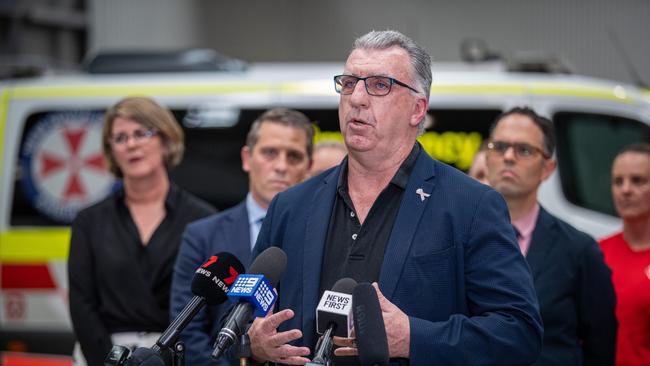$3.5bn wage boost for 350,000 aged care workers
Around 350,000 workers in aged care have been awarded pay rises by the Fair Work Commission in recognition that the work they do in caring for the nation’s vulnerable older citizens has been undervalued.

Pay rises awarded to around 350,000 aged care workers, some delivering a further 13.5 per cent on top of a 15 per cent hike last year, are set to cost the Albanese government’s upcoming budget billions of dollars.
After pumping $11.3bn over four years into aged care wages in the 2023 budget to cover the Fair Work Commission’s 15 per cent interim ruling, the FWC’s final decision on Friday will require a significant further financial commitment, with initial estimates of more than $3.3bn over the forward estimates.
The ruling will see direct care workers such as personal care workers and nursing assistants receive pay rises of between three and 13.5 per cent in addition to the interim award that started flowing into pay packets in July last year.
Home care workers have been awarded increases of between four and 11 per cent in addition to the earlier pay rise.
And another 100,000 indirect care workers who were left out of the original 15 per cent pay decision will see their pay boosted by a minimum of three per cent, with some workers who interact more regularly with nursing home residents – laundry workers, cleaners and food service assistants – seeing their pay jump by almost 7 per cent.
A decision about pay increases for registered and enrolled nurses was deferred.
The FWC expert panel said there “are work value reasons” for the minimum rates of pay for direct care workers being “increased substantially beyond the 15 per cent interim increase.”
“The work of aged care sector employees has historically been undervalued because of assumptions based on gender,” it said.
The FWC explained the wide disparity between pay increases, noting “there is a fundamental difference between the work value of direct care workers and other employees engaged in residential aged care.”
The case was originally brought by the Health Services Union in late 2020, seeking an across the board 25 per cent pay increase in the sector.
HSU national president Gerard Hayes said the new wage rises “will usher in a new era of decency and dignity in our aged care homes.”

“For the last decade aged care has been held together by the goodwill and commitment of a severely underpaid, insecurely employed workforce. Today those workers have won wage justice,” he said.
Anthony Albanese said it was clear aged care workers needed to be paid more so the sector could attract and retain staff.
“It is vital that our older Australians get dignity and respect in their later years,” the Prime Minister said. “And they deserve better pay, so the government will examine any finding that comes down.”
In a submission to the case in November, the federal government didn’t offer a position on the additional increases sought, but requested it be heard about the “timing and phasing in” of any new pay rises. This was granted by the FWC.
The commonwealth said it would only be able to advise on timing of new funding after “the quantum of any increase is determined.”
“The commonwealth’s fiscal strategy is focused on putting the budget on a more sustainable footing over time and award increase that is not anticipated by the commonwealth will have an impact on budget decisions,” the submission said.
Peak provider advocacy group Aged and Community Care Providers Association chief executive Tom Symondson said the Albanese government had made an election commitment to fully fund the outcome of the wage case.
“We commend the Albanese Government for honouring its pre-election commitment and fully funding last year’s 15 per cent award increase for direct care worker,” Mr Symondson said. “We fully expect the government to do the same with these increases.”
Uniting Chief Executive Tracey Burton said the decision to include non-direct care workers in the wage increase was an acknowledgment that every worker in the sector has a vital role to play, however she was disappointed the increase was minimal.
Catholic Health Australia also called on the government to fully fund the rise.
“We strongly support the claim to raise the wages of dedicated, compassionate and hardworking staff, especially as cost of living pressures mount,” said director Laura Haylen.
“The federal government must deliver on its commitment to fully fund these wage rises as soon as possible, including any leave entitlements. With most aged care providers already running at a loss, they cannot afford to absorb these extra costs without government funding.”







To join the conversation, please log in. Don't have an account? Register
Join the conversation, you are commenting as Logout